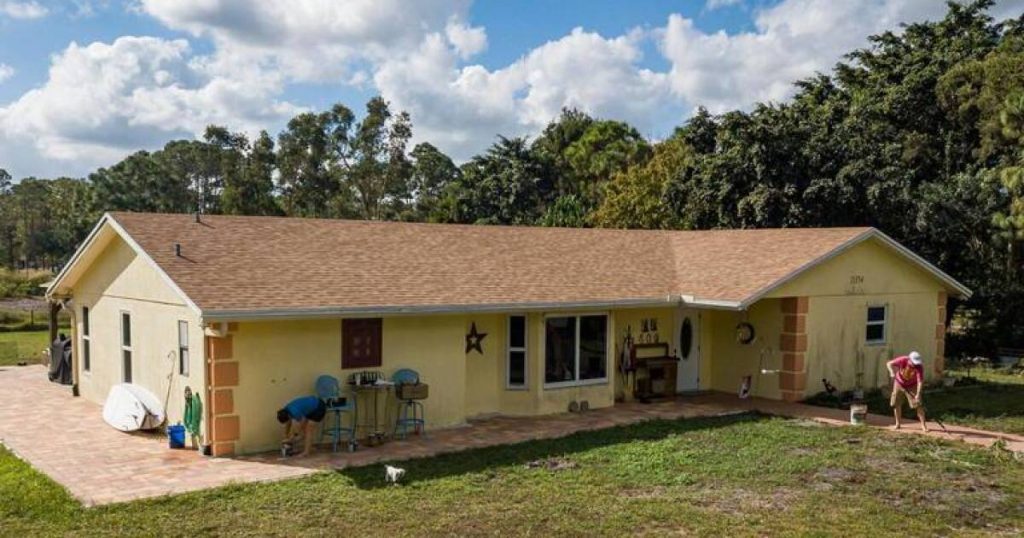Miami-Dade residents who choose to fix up their homes with a unique financing program that has generated a slew of consumer complaints just got a variety of new protections to make it a little safer.
The Property Assessed Clean Energy program, or PACE, offers homeowners a way to pay for certain pricey projects like hurricane windows and high-efficiency air conditioning without a credit check or any money down. Instead, the program uses the home itself as collateral for the debt by placing a lien on the home. Interest and fees are then collected each year through property taxes.
Although the end result is similar to a traditional bank loan, PACE is far less regulated in Florida.
Miami-Dade commissioners changed that on Tuesday, when the board unanimously voted to add some consumer protections to the program, which has more clients in Miami-Dade than any other county in the state. Though it has helped many homeowners improve their homes, the program also has generated a host of complaints about shady contractors and confusing payment terms.
The legislation, sponsored by Commissioner Kevin Cabrera, was inspired by Miami Herald reporting earlier this year showing that Florida — and Miami-Dade — lagged behind the rest of the country in terms of consumer protections.
The new protections answer some of the most common complaints about the program. Now, PACE providers have to fill out a detailed disclosure document outlining to the homeowner exactly how much they owe over the lifetime of the agreement, the interest rate for the purchase, the estimated annual cost added to property taxes and a warning that if the homeowner doesn’t pay their property taxes, they could lose their home.
Multiple people in California, where the program originated, went into foreclosure over unpaid property taxes from this program, but so far, it appears Florida hasn’t seen any foreclosures.
The new disclosure doesn’t apply to projects that cost more than $250,000, commercial properties or multi-family residential projects.
Cabrera’s bill also asked the county to “more vigorously enforce” its consumer protections for the PACE and hold the companies to account for residents’ complaints.
“What we’re trying to make sure is that folks are safeguarded from any kind of loss that they have,” he told the commission. “With this disclosure, folks know what they’re signing up for.”
Pedro Portal
/
Miami Herald
Some industry support
Representatives of three of the four PACE programs allowed to work in Miami-Dade showed up to support the bill, including the second-largest provider in Miami-Dade, Renew Financial.
Chris Peterson, representative for two more providers, FortiFi Financial and Home Run Financial, called the disclosure a “welcome change.”
“We obviously want all of the consumer protections we can get,” he told commissioners. “This revised disclosure mirrors what we’re already doing.”
Ygrene, the largest PACE provider in Miami-Dade and the state, did not appear at the commission. Last week, a county committee approved another of Cabrera’s PACE-related bills, which would dissolve the county’s agreement with an appointed board of politicians that oversee Ygrene in the county, known as the Green Corridor.
Cabrera openly called the bill “punishment” for Ygrene, which abruptly pulled out of Florida late last year, leaving thousands of homeowners and contractors without a source of cash to pay for their projects, some of which were in progress. The company re-opened business in Florida in February with a new financial setup.
The commissioner said he’s also working on a third PACE-related bill that would ensure future companies could not withdraw from business in the state without warning consumers and regulators first.
Protections elsewhere
These new protections put Miami-Dade near the top of the pack in county-level protections. Counties like Palm Beach and Broward require similar disclosures, which are above and beyond what the state requires.
But places like Pasco County go further still. There, a designated staffer calls each new PACE homeowner and walks them through the program before the state-mandated 3-day cancellation window closes.
And in California, after years of complaints, foreclosures and even a federal investigation into Ygrene that spanned Florida and California, the state set up a regulatory board that reviews all consumer complaints and metes out fines and punishments for companies that break the law. If a company gets in too much trouble, it gets kicked from the state altogether.
In Florida, there is no state board explicitly designed to oversee PACE or handle complaints. Florida’s Attorney General’s office said it has received more than 100 complaints about various PACE programs since 2019 and confirmed to the Herald that it has an open investigation into Ygrene.
Read the full article here










